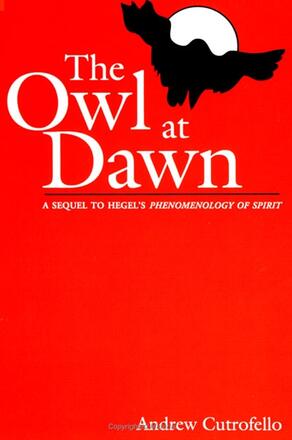
The Owl at Dawn
A Sequel to Hegel's Phenomenology of Spirit
Alternative formats available from:
A present-day continuation of the philosophical narrative presented in G.W.F. Hegel's Phenomenology of Spirit that confronts every major post-Hegelian philosophical position and arrives at an original reconception of the purpose of dialectical phenomenology.
Description
The Owl at Dawn is a continuation of the narrative of Hegel's Phenomenology of Spirit. Where Hegel's narrative ends with the apotheosis of "absolute knowing," Cutrofello begins with the collapse of this very standpoint. He then develops a continuation of the dialectical movements that lead from the rift between the certainty and truth of absolute knowing, through every major post-Hegelian philosophical position, to a point that represents an original reconception of the telos of dialectical phenomenology.
As the narrative progresses, it becomes clear that two general movements were necessary to supplement the Hegelian story: a working out of gender-theoretic issues and the deconstruction of all truth claims. The result, which Cutrofello calls a "Nietzschean Satyagraha," is an original epistemic and ethical starting point for a systematic philosophy of praxis. Analytic philosophers, continental philosophers, gender theorists, sociologists, and psychoanalytic theorists will all find the major theoretical positions of their disciplines presented and critiqued in this bold philosophical thought experiment.
Andrew Cutrofello is Assistant Professor of Philosophy at Loyola University of Chicago. He is the author of Discipline and Critique: Kant, Poststructuralism, and the Problem of Resistance, also published by SUNY Press.
Reviews
"A brilliant, original evaluation of post-Hegelian philosophy from the perspective of Hegelian phenomenology." — Lawrence S. Stepelevich, editor, Owl of Minerva
"Andrew Cutrofello has attempted what would have seemed to be an impossible task, a sequel to Hegel's Phenomenology. In a fascinating, even gripping narrative, Cutrofello tells the story of post-Hegelian philosophical developments. In the style of the Phenomenology, he stages the engagement of various philosophical positions to show how they are interrelated. This book is as impressive philosophically as it is creative. It is a pleasure to read." — Kelly Oliver, University of Texas at Austin